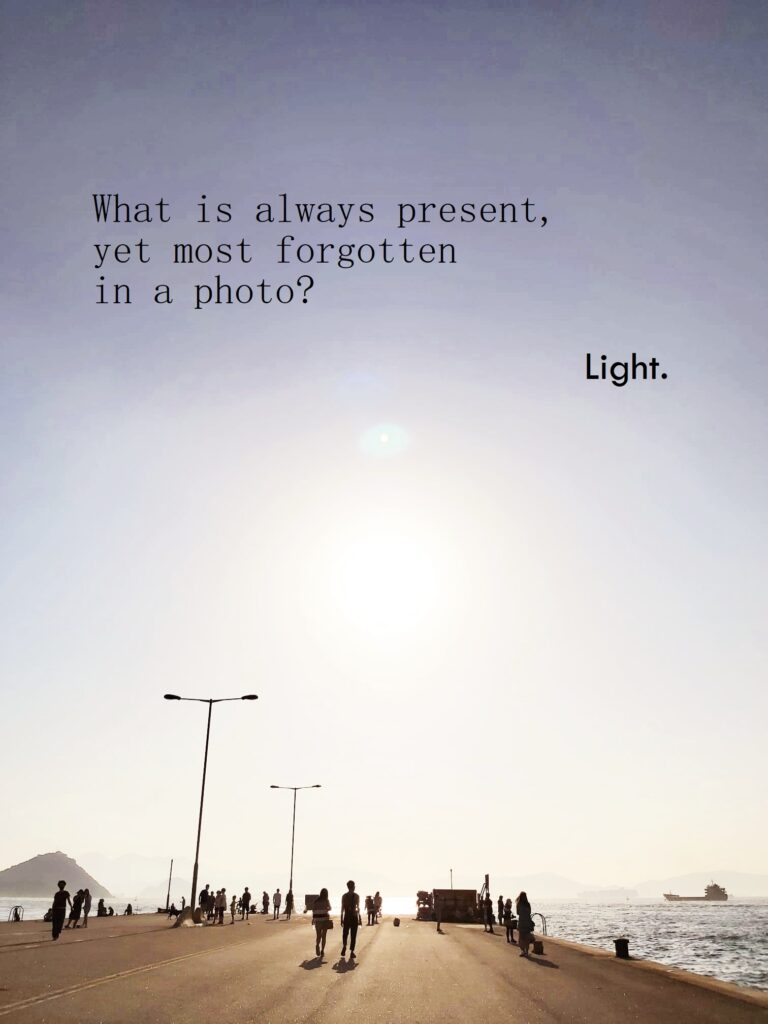
The Chinese version is after the English one.
中文版本在英文版本下。
I remember back in my school days, there was a time when I was watching the late-night broadcast of “Hunter x Hunter” on TV. The protagonist, Gon, rescued a badly injured small animal, possibly a bear cub or something similar. The bear cub was on the brink of death, and Gon’s friend Killua, unable to bear the sight of its suffering, suddenly revealed a fierce look and wanted to put it out of its misery with a single punch. However, Gon stopped him. That night, I was deeply moved because, whether I put myself in the shoes of the bear cub or Killua, I would have chosen immediate death to end the pain. At that time, the pain seemed endless. I couldn’t understand Gon’s decision. Looking back at myself then, I realised that this deep struggle stemmed from being governed by a habit called “despair,” and it collided with the determination and unwavering confidence of someone like Gon. I discovered a missing piece in my inner self, but I couldn’t quite define what it was. It felt like I had struck a fragile chord within me, creating an unusually clear sound that continued to resonate in my heart.
Here, when I say that people are governed by despair, I’m not referring to specific events like being trapped in a remote mountain cave and exclaiming, “This is so despairing!” Instead, I’m talking about a habitual thought pattern, where even though you have the ability to break free, you’re like a baby elephant bound by ropes that grow with you into adulthood. Even as a full-grown elephant, you don’t realise that you could have broken free long ago. Why does this happen? Every despairing person has their own story, usually learned through experiences combined with negative narratives. The problem is that recognizing “despair” in oneself is not an easy task because habitual despair is about thinking that there is no hope for change. Such individuals naturally believe their assessments and measurements are absolutely normal, correct, and on the right path, and they don’t see themselves as feeling despair. It’s like truly diligent people often feel they’ve only met the minimum requirements and don’t consider themselves particularly hardworking, while lazy people tend to believe they’ve done their best and don’t see themselves as lazy. Despairing individuals similarly think there’s nothing reliable around them, that things will only get worse, that their present is so miserable, so what will the future be like? Since everything will end up as nothing, why disturb the peace of their hearts, why create any “false hope” anymore? These statements become established facts, the only reality in their view, and they don’t see themselves being imprisoned by their thoughts called despair. The baby elephant clearly remembers that the rope causes immense pain, but it doesn’t believe it has the ability to break it, so it never reflects on the fact that self-imposed limitations stem from despairing thoughts. Without awakening, even if grace abounds and the environment isn’t that bad, the heart remains uncomfortable, and the moment something slightly negative happens, they retreat back into the shadow of despair, unable to break free.
Life itself carries pain, and those governed by despair feel the pain is unbearable, as if pain were a relentless monster that never dissipates or weakens, overpowering and unconquerable. One can imagine living under this framework for an extended period, and the result is a diminishing of the energy of life.
If you are moved, please pray with me:
Dear Lord, Thank You for showing me what despair looks like within me today. The despairing thoughts I may have learned from my experiences, especially from___________. (Or: I don’t know where these thoughts come from, but I know they exist.) I feel despair because I genuinely can’t see any other possibilities beyond these thoughts. Now, in the presence of the eternal and Almighty Lord, I’m willing to surrender this habitual despair to You. I pray for the light of Your truth to shine deep into my soul, releasing the strong and negative beliefs I hold. I pray for a new path to open up in my mind, allowing me to grasp onto the promises of God amidst the uncertainty of an unknown world and the pain of experiences. I pray for the eyes of faith to open within me, acknowledging that there is a divine purpose in my life and looking forward to the fulfilment of Your good will for me. Even though the path ahead is unclear, and the suffering seems endless, I, by my free will, in the name of Jesus Christ, declare that I am willing to find hope in the protection of the Almighty, inviting the Holy Spirit to fill me with Your peace, love, and light. In the name of Jesus Christ, I pray. Amen.
Photo: Soul Yearn
抗拒絕望
記得在讀書年代,有一次看電視台深夜播的《全職獵人》,主角小岡 (或譯小杰) 救起了一隻受了重傷的小動物,好像是熊崽子還是什麼的。熊寶寶傷得太重,已經奄奄一息,小岡的好友基路亞 (或譯奇犽) 見牠不住呻吟,無法按捺,突然目露凶光,想一拳了結牠,終止牠的痛苦,後被小岡阻止。那一晚,我覺得被震憾到了,因為不論代入小熊,還是基路亞,我都會選擇即時死亡,了結痛苦,而那種痛苦,在當時看來,似乎是無窮無盡的。我不明白小岡的抉擇有何依據。後來回顧當時的自己,才明白那種深層的掙扎,是源自給一種名叫「絕望」的慣性在支配著,然後遇上像小岡那樣的執著和堅定的信心,而產生的撞擊。我發現了內心有一點欠缺,但說不出是什麼,總之就是敲響了脆弱的一環,而發出了異常清脆的聲響,並在心裡不斷迴盪。
這裡說人被絕望支配,說的不是個別的事件,例如「被困在四野無人的山洞裡,真是太令人絕望了!」而是在說一種思維的慣性圈套,明明有能力走出來的,卻像小笨象被綁著繩索長大,到成為大笨象後仍不知道自己其實早可走出困鎖。為何會這樣?每個絕望的人背後都各有故事,多數是從經驗,再加上負面的論述中習得的。問題是,要自己認出「絕望」,原來都不是易事,因為慣性絕望,說的就是思維上慣性覺得沒有改變的希望,這樣的人自然覺得他的估算和衡量是絕對正常正確正路的,而不會覺得自己正感絕望。正如真正勤力的人總覺得自己不過只做到了最低要求,不認為自己特別勤力,反而懶惰的人往往都自問已做到最好,不會覺自己懶。絕望的人同樣覺得身邊沒有任何東西可靠賴、事情只會向更壞發展、現在已經那麼悲慘那將來怎麼辦、既然最後不過一場空那何必攪動自己的心湖、與其沒有尊嚴沒有把握的活倒不如靜靜的把自己永遠放逐不再抱有遐想…… 等等陳述便是既定的事實,是視界裡的惟一,而不會看出自己正劃地為牢,困於這名為絕望的思想之中。大笨象明明記得那繩子令牠痛楚無比,不會相信自己根本有扯斷繩索的能力,因而也不曾反思到自限其實來自絕望思想。沒有覺醒,你怎樣大聲疾呼叫他抗拒絕望,他也不會覺得與己有何切身關係。
看到這裡,可能你會問,相信事情向壞的方向發展,不是叫悲觀嗎?何以說是絕望?悲觀和絕望二者沒有衝突,呈現的形式非常相似,但二者卻是兩個層次的事情。先說悲觀,悲觀有不同的層面。對個別事件的悲觀,例如:「我對香港的廢物回收事業感到悲觀」,是對個別狀況的判斷,並不屬於思維的慣性和性格的形成,我要說的不是這種。也有些人,他們積累了一些人生智慧,對凡事均留一手,不把事物想得太圓滿,以留餘裕給自己轉彎或落台,保持彈性和雍容,這種也不是我想說的悲觀。但如果對凡事都抱有負面色彩,覺得好事絕不會臨到自己身上,或硬是覺得好事來臨就一定是災難的先兆,惶惶終日,這種悲觀就不太健康,會窒礙生命的成長和成熟。
而絕望,是比悲觀藏得更深的信念,比悲觀難指認得多。如果說,悲觀是一種負向的預測,絕望就是拒絕希望,拒絕相信事情有改變的空間,而必須停留在悲觀的狀況之中。悲觀是相對顯性的思想呈現,一個人比較容易承認自己悲觀,而非絕望。絕望的根,深藏在傷痛的情感記憶之中,它的枝葉靜悄悄地籠罩了整個心房,透不進光,且會伸出利刺,抗拒外來的援助,形成更深的蒙蔽。但當它被宿主正確地認出和命名,它就會疼痛,然後萎縮。又或者,若有像上主扭轉生命那樣強大的亮光直接照射在內,掀開蒙蔽,它也無法不萎縮。萎縮了不代表一勞永逸的消失,它會再長,長得多茂密,就視乎宿主自己的修行。若沒有覺醒或光照,大多數時候,即使恩典豐盈,環境不那麽壞,心仍是不舒服,而且一旦稍有不好的事發生,便會躲回絕望的蔭下,走不出來。
生命本身就帶著疼痛,絕望的人覺得疼痛是那麽的無法承受,疼痛有如奪命狂魔,永遠不會消散和減弱,無力無法無從勝過。可以想像,長期在這套枷鎖之下活著,萎縮的當然是生命的能量。
如有感動,請跟我一同禱告:
親愛主:
感謝祢,今天我看到了內心的絕望是什麼模樣。那些絕望的思想,很可能是從我___________的經驗裡學會的。(或者:我不知道這些思想從何而來,然而我知道它的存在。) 我感受到絕望,因為我委實看不到除了這樣想,還有什麼別的可能性。如今在永恆、大能的主面前,我願意把這絕望的慣性交出來給祢,求祢的光茫透進我心靈深處,鬆開我那些負面而堅固的信念。求祢在我心靈裡開闢新的路徑,讓我在茫然未知的世界中,在許多痛楚的經驗中,能夠抓著祢可靠的應許,轉向信心的道路。求祢開我信心之眼,讓我在頭腦認知以外,承認上帝在我身上必有美意,並期待祂在我身上的美好旨意達成。縱然前路未明,痛苦似是無盡,然而我以自由意志,奉主耶穌基督的名宣告,我願意在上主全能者的蔭下得著盼望,求聖靈進入我心內,以祢的平安、愛和光明充滿我。奉主耶穌基督之名我禱告。阿門。
照片:朔仰